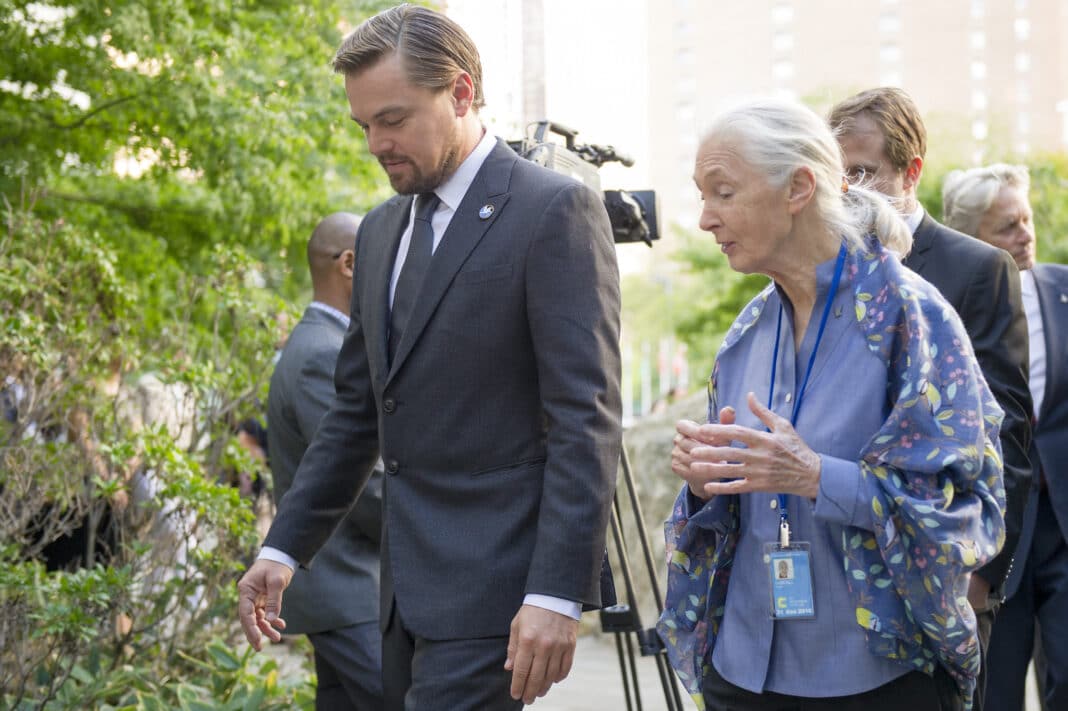A plan by Defence Housing Australia to level 400-year-old native trees and build luxury waterfront housing has sparked outrage, with high-profile conservationist Dr Jane Goodall joining indigenous communities in calling on the country’s Australia’s powerful environmental minister, Tanya Plibersek, to stop the 800-lot development from proceeding.
Dr Goodall, who will tour Australia later this month, said the actions were “simply unacceptable” and called on the Albanese government to pause the Lee Point development.
The site is home to three native species believed to be on the brink of extinction and a sacred site for Darwin’s Indigenous population.
“The devastating news that bulldozers have started operating at Lee Point’s precious local woodland is a crushing blow. The loss of such vital land, a biodiverse corridor and home to hundreds of bird species (some endangered) is simply unacceptable,” Goodall told Yahoo News Australia today.
“I plead with the Environment Minister to consider the significant impact this destructive action will have on the wildlife and people of the Darwin area now and in the future.”
The statement comes after the Greens called on the Albanese Government to issue an urgent moratorium on land clearing. At the same time, Re: Wild, a conservation group founded by Hollywood actor Leonardo Dicaprio, has renewed calls for Australia’s environmental laws, currently under review as part of the Nature Positive reforms, to be “strengthened” to prevent further endangered species from being impacted.
In February, Mr Dicarpio, a board member of WWF USA, said, “The Australian government has promised that it will prevent any new extinctions. Conservationists continue encouraging them to uphold their zero extinction commitment (as part of its 30 x 30 commitment).”
At the time, Mr DiCaprio added that “the only way to protect the Swift Parrot (in Tasmania), and hundreds of other threatened Australian forest species, is to end native forest logging across Australia and Tasmania.”
According to Re: wild’s Australian spokesperson, Janice Chanson, “Australia’s laws urgently need to be strengthened to protect hundreds of threatened species (including the Koala, Swift Parrot and Gouldinan Finch)” with Professor Euan Ritchie, a wildlife ecologist at Deakin University adding that more than 200 species of birds documented at the site, set to be turned into housing.
“People travel from all over the world to see Australia’s iconic wildlife, and Lee Point is no exception. People have had the amazing experience of seeing Gordian finches close to a major city, Darwin,” Professor Ritchie told Yahoo. “It’s deeply embarrassing. Australia has absolutely shameful conservation records, which contributes to that,” the Professor said.

Last week, Yahoo reported that 100 police surrounded Lee Point to protect bulldozers contracted by Defence Housing Australia (DHA) as they flattened 20 hectares of the 131-hectare site.
According to Ecologist Graeme Sawyer, who was arrested during protests last week, several trees at Lee Point are hundreds of years old, with the most significant forested areas now gone. Still, he hoped what remained could be spared. He submitted a formal letter to the government and attached videos showing trees flattened without fauna spotters directly supervising.
“They knew there were endangered species. How can they get away with this?”
When asked to respond to these claims, the Federal Department of Environment told Yahoo it was satisfied DHA was “complying with its Australian Government conditions of approval,” while NT Environment Minister Kate Worden did not respond to requests for comment.
Australia’s New Nature Positive Act
The “Nature Positive Act”—the Albanese government’s signature environmental policy— represents the most significant change to environmental laws for decades.
In recent months, officials representing the minister have been sharing sections of the draft laws after consulting with conservation, businesses (including the Australian Forest Products Association) and other groups.
Wood Central understands that the new laws will establish a nationwide Environmental Protection Authority, with the legislation also applying to Australia’s Regional Forestry Agreements (or RFA’s).
The new laws will replace the 25-year-old Environment Protection and Biodiversity Conservation (EPBC) Act, with Minister Plibersek promising to make sweeping reforms after taking office in 2022.
In November, Environment Department officials told a public webinar that the new laws would be “outcomes-focused” and guided by new environmental standards.
To learn more about Australia’s new environmental legislation, which is currently being drafted, click on Wood Central’s special feature.






